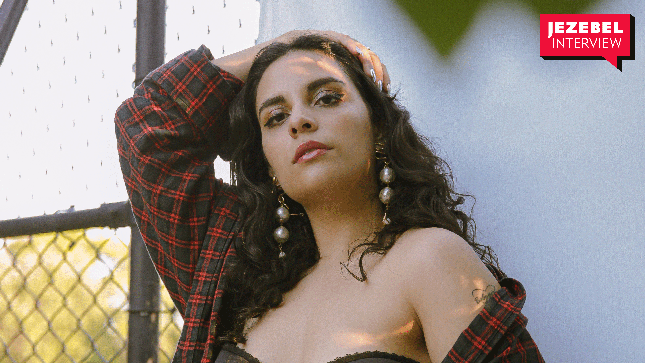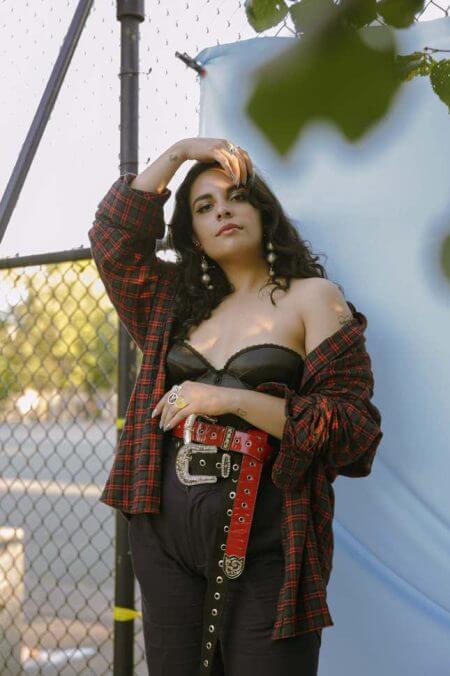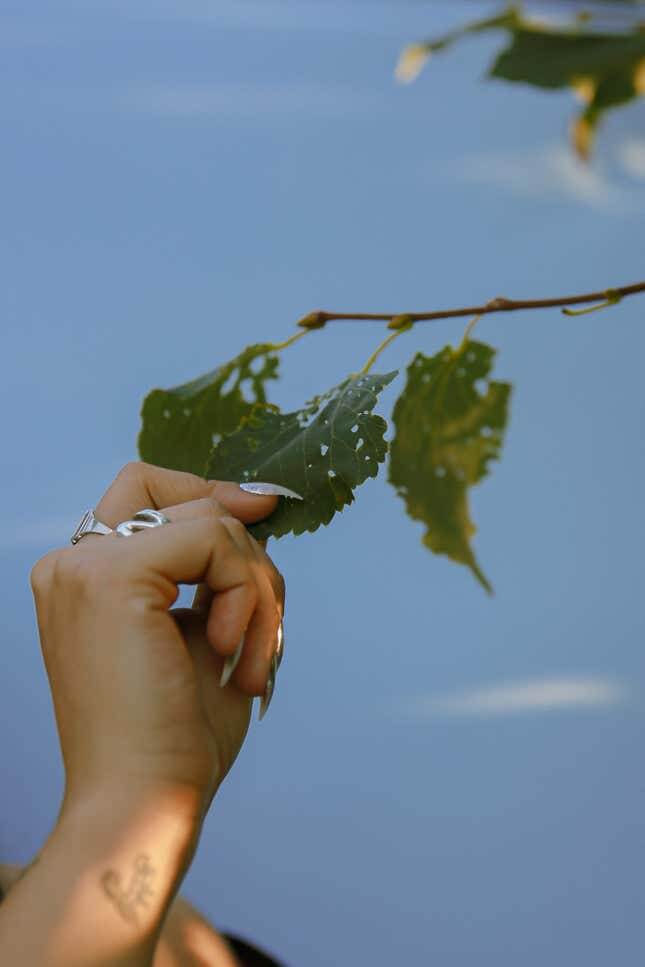
Photo: Makeda Sandford
At age 17, Mariana de Miguel told her parents she was going to pursue music full-time. She started a band fresh out of high school, then found her footing in Mexico’s R&B scene, embryonic at the time. “My main goal with this genre and what I’m doing is to open up the path for other artists to really create the unseen,” she says, sitting atop a yellow satin cloth at Maria Hernandez Park in Brooklyn. She’s processing the past few years out loud, the night before her NYC tour stop at the Knitting Factory.
The 23-year-old behind Girl Ultra took time to sway across stages around the country this summer to psych herself—and all of you—up for the release of her debut album Nuevos Aires (which translates to New Airs), due this fall. Her playful new single “Ruleta” is the album’s second teaser, following the flirty yet agitated “Ella, Tu, y Yo,” a song about tortured memories of an all too familiar infidelity. With these preludes, de Miguel expands on the sound she established on her EPs Adios and Boys, cementing herself as an R&B reina. We talked about her upcoming work, how her collaboration with Cuco happened, and making room for Mexican artists on the rise.
JEZEBEL: We change so much in our 20s. It’s a strange time! And I imagine, even more so if you’re going through that evolution on stage, publicly, and clearly transmitting that through your music. How do you approach music writing during all that?
GIRL ULTRA: Okay, well, it definitely has a personal perspective. Everything I do as a composer and also as a visual artist, everything is related to something that happened to me or a friend, or my interpretation of emotions and things, but change is a big part of my project. The first artist that made me want to be an artist was David Bowie and I always see him as a phase artist… He has different phases. He even has a song called “Changes.” And I’ve always seen myself like that. Girl Ultra is not always gonna be Girl Ultra. The real creator is Mariana de Miguel, and Girl Ultra is just the vessel. So I’m really inspired by changing.
Like Bowie, your fashion sense is unique and expressive. How did you pinpoint what and who you wanted Girl Ultra to be? And how do you separate the two in your personal life?
Definitely—they’re two different people, completely. But, they compliment each other, Girl Ultra and Mariana. Mariana is like the observer, the one that collects all the info, and Girl Ultra is the one that pushes it out, that transmits the message. But in terms of my personal brand and everything I feel like I’m attracted to, pieces that make me feel something, I really like vintage clothing because of that. Each specific piece gives me an energy. For example, colors [are] what inspire me to dress the way I dress. For shows, it’s like, today’s gonna be purple! I don’t know why, but it’s gonna be purple. And I just grab every fucking purple item in my wardrobe and I see what I can do with that.

Lovely. So, why R&B? It’s not something that’s really been deeply explored in Spanish, at least not in our generation, because you and I definitely grew up listening to iterations of it. We probably just didn’t realize that’s what it was at the time.
Well, I grew up listening to it as you say, without knowing it was R&B. But we actually have a lot of R&B infiltrations in our pop music. Like there was this duo called Sin Banderas, and they definitely made R&B. They had R&B progressions and melodies and there was not an R&B path for Latin American or Mexican projects—it was just “pop music.” And, right now, I feel like labelling things in this information era where everything’s so fast and nobody cares about anything, is helpful right now. I’ve been seeing this emerging scene of R&B growing up in the [Spanish] language, which is what I want. The music is there. We now recognize what R&B sounds like, but in Mexico there was no reference to that. There was this prejudice of how a Latina woman should sound and look. They thought I was [making] trap music. They said, “She’s the shittiest trapper.”
-

-

-

-

-

-

-

-

-

-

-

-

-

-

-

-

-

-

-

-

-

-

-

-

-

-

-

-

-

-

-

-

-

-

-

-

-

-

-

-









































